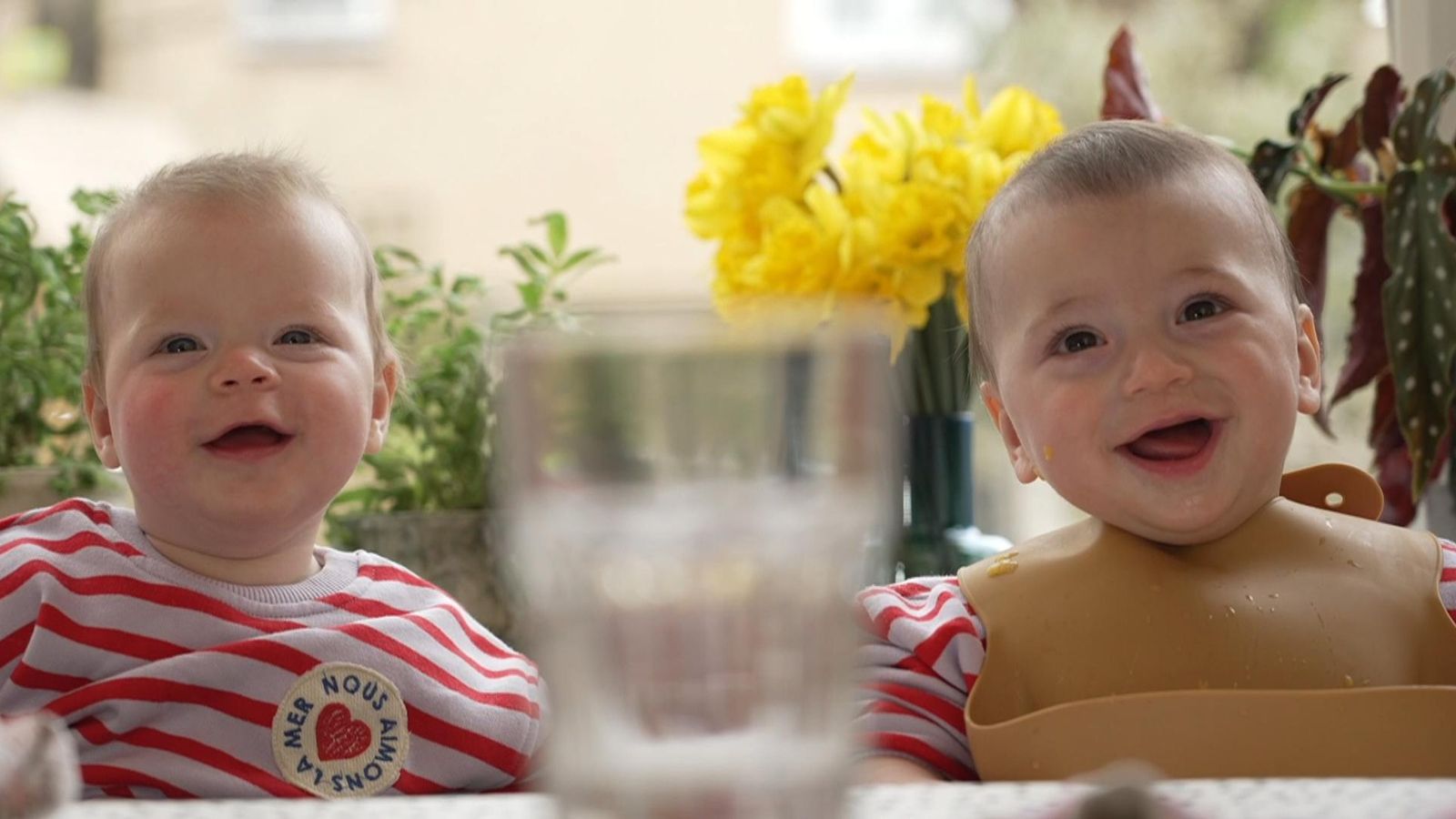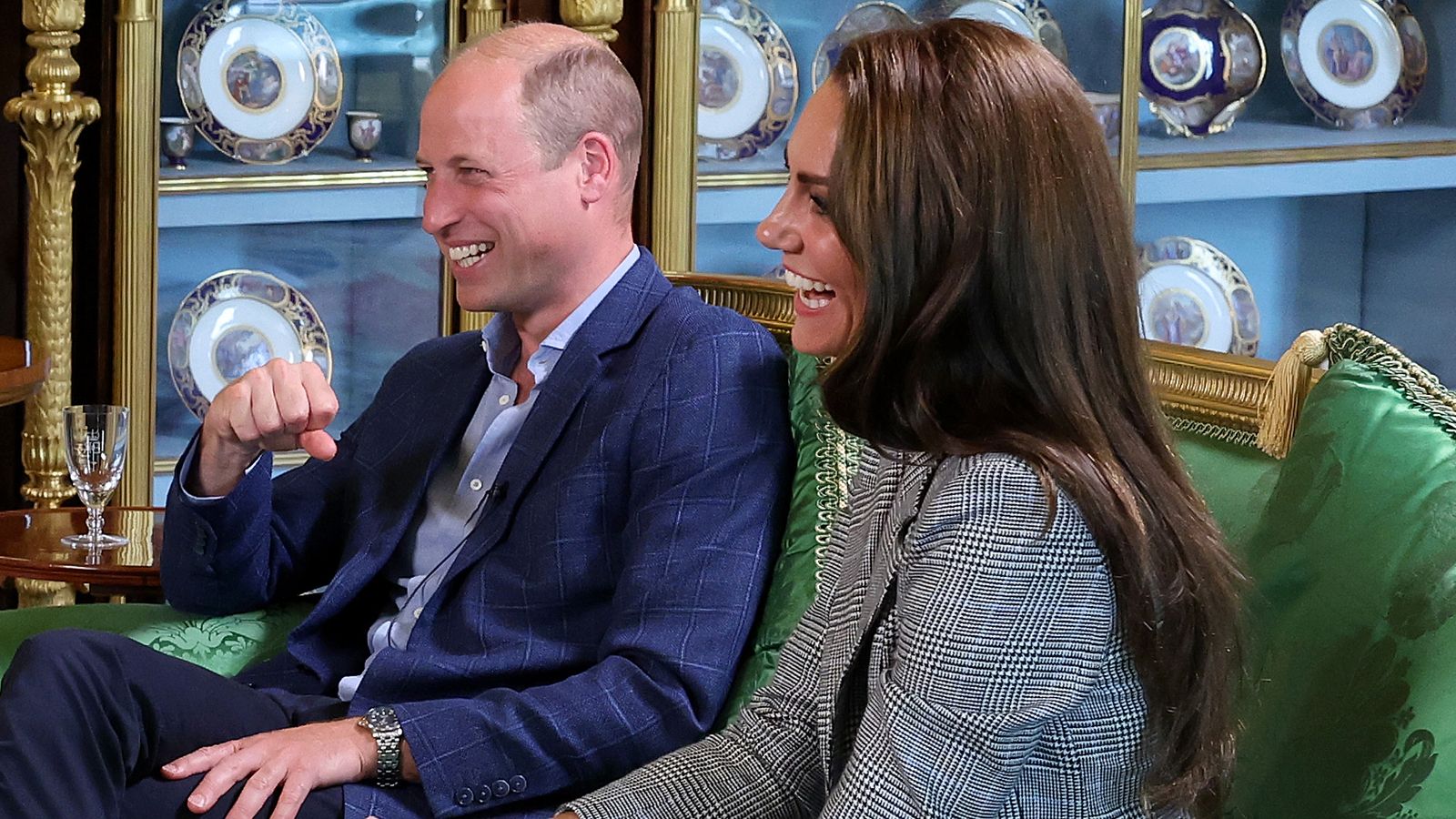The UK is losing out on economic growth worth up to £38bn every year because of unsuitable childcare, exclusive figures reveal.
A report from the thinktank Centre for Progressive Policy (CPP), shown to Sky News, shows the lost economic output is between £27bn and £38bn, the equivalent of 1% of GDP.
Their figures are translated from the survey results of 2,545 mothers which found that 27% said they would like to work more hours if they had access to suitable childcare.
If those hours were realised it would result in at least £9.4bn in additional earnings per year, with an estimated economic output the equivalent of 1% of GDP.
The CPP described the figures as a “conservative” estimate and are calling for childcare to be viewed as physical infrastructure.
Ben Franklin, director of research and policy, described it as “a big economic prize”.
“At the moment, the government can borrow to invest in hard physical infrastructure, so railways and roads,” he said, “but we think there’s a strong economic case for treating childcare in the same way.
Nursery fees ‘to rise by £1,000 this year’ as childcare providers struggle with costs – forcing parents to quit work
Why is childcare so expensive?
“The gains to be made from supporting mums and employment are substantial.
“And the gains over a child’s life, developing their own ability in terms of education and the future human capital of the country.
“So we think that childcare should be treated the same as other forms of hardhat infrastructure, that are often seen as more sexier within the corridors of power.”
Based on the survey results, CPP also estimate that an additional 540,000 mothers have been prevented from getting paid work.
It also found that 880,000 have cut down their hours, and 470,000 have quit their jobs.
Cherry Fitzsimmons is a paediatric occupational therapist in London – an understaffed sector in the NHS – who had twins last year.
She describes the “madness” of a “flawed system” that has forced her to take an extra six months of unpaid leave because of childcare costs.
“In my area (at work) we’re looking at overseas recruitment and paying for visas from our budget,” she said.
“It just feels ironic that my team are paying for visas for people to come from other countries to help fill the gaps, but then I can’t work because I can’t afford to because of this childcare system.”
She says by the time her three children go to school she would have spent around £100,000 on nursery fees.
“I think the government know that it’s not working,” she said, “and this feels like negligence, when they’re just not doing anything about it.”
Three and four-year-olds in England are eligible for either 15 or 30 free hours a week depending on whether their parents work.
The funding, however, given to nurseries to cover this is often not sufficient.
‘I get more money cleaning toilets’
Kate Wright, who runs Little Buddies preschool in Lowestoft, has had to take on extra work as a cleaner to help pay staff wages.
“I get more money cleaning toilets than I do working and owning a business,” she tells Sky News.
The living wage is set to rise in April and she says she is “starting to get really worried”.
“That’s going up by 92 pence per hour, bear in mind we’ve got six members of staff doing six hours a day 38 weeks of the year, and the funding isn’t going up in accordance with that.” she said.
“The ratios for two year olds is one to four, and the two year old funding is only going up 17 pence per hour, which is only 68 pence – so where is the deficit of the 24 pence coming from to pay for the members of staff?”
Figures from the Early Years Alliance show that over a third of childcare settings say it is likely that rising costs will force them to close this year.
Claire Richmond, who runs Little Goslings in Coventry, says she has had three members of staff who have left to go and work in Sainsbury’s.
“People are exiting the sector and getting a job at Sainsbury’s on more per hour,” she said.
“Because the accountability and the responsibility that’s put on us is massive. Those things rightly should be in place, we’re very happy to carry out those things.
“But we just need to have a fair amount coming in to fund amazing staff… the numbers just don’t stack up.”
She says her nursery is only just breaking even and is calling for business rates to be scrapped for childcare settings as a financial aid.
‘On the brink of collapse’
Joeli Brearley, from campaign group, Pregnant Then Screwed, describes the childcare sector as “on the brink of collapse”.
She says the system is also exacerbating gender inequality with “a big exodus of women from the labour market”.
“We have a skills shortage in the UK and yet we know we have hundreds of thousands of women who are now stay at home mums, who desperately want to work but they can’t afford to do so,” she said.
A Department for Education spokesperson said: “We recognise that families and early years providers across the country are facing financial pressures. That’s why we have spent more than £20bn over the past five years to support families with the cost of childcare.
“This government has doubled the entitlement for working parents of three and four-year-olds to 30 hours and introduced 15 free hours a week for disadvantaged two-year-olds.
“On top of this, working parents on Universal Credit may be eligible for help with up to 85% of their childcare costs through Universal Credit to support with the costs of childcare.”







